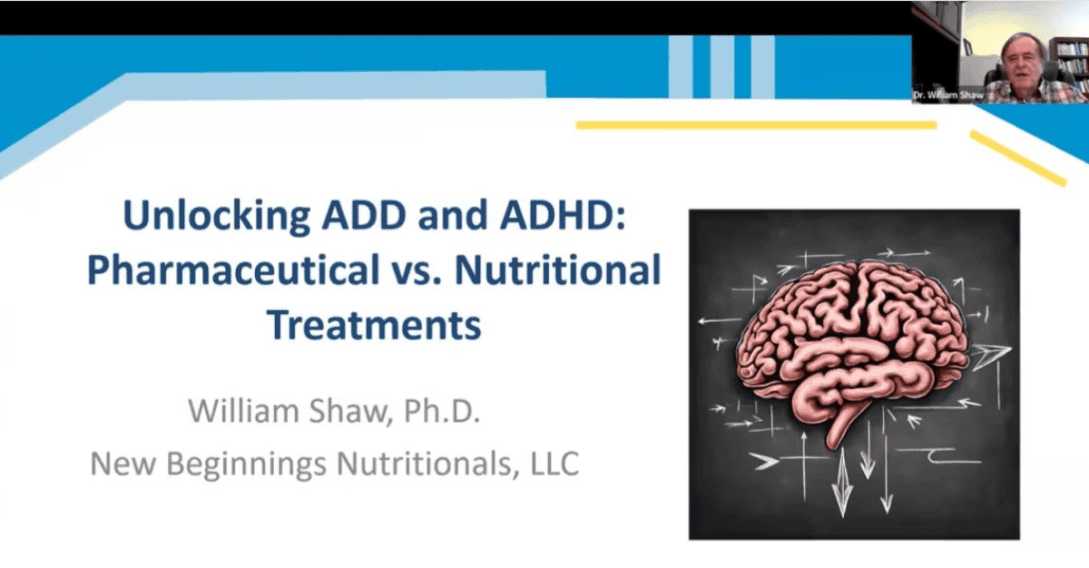ADHD: Prevention and Treatment
Attention Deficit Hyperactivity Disorder (ADHD) is considered to be a condition resulting from a combination of lifestyle and environmental factors combined with a genetic predisposition.
Studies show that maternal factors such as smoking, alcohol use, nutritional deficits, a C-section, and a family history of ADHD can increase the risk of ADHD in a child. Childhood nutritional imbalances, dietary factors, brain injury, exposure to toxins (i.e. lead; pesticides), excessive television viewing, and allergens are some of the environmental or lifestyle factors that have been associated with the condition.
Standard treatment focuses on stimulant medications, non-stimulants that affect neurotransmitters, and antidepressants. Each has the potential for significant side-effects. See “ADHD Treatment: Taking the Road Most Travelled” for a summary of typical conventional treatments.
Due to concern over medication side-effects and lack of drug effectiveness for some children and adults, many people seek natural and integrative approaches to ADHD. Our article “Natural and Integrative Treatments for ADHD” describes some of the key interventions that are currently used.
.




.
Related articles are shown below. If you don’t find what you’re looking for, you can search using the box at the upper right of the page or browse our forums.
By Robby’s mom: When our son was two and a half years old, he was having problems with concentration and was very overactive, even for a toddler. He also had speech impediments. I was surprised when […]
ACN Report New options for treating symptoms of Attention Deficit Hyperactivity Disorder (ADHD) are constantly being pursued. One of the latest developments gaining attention is Monarch eTNS®. External trigeminal nerve stimulation (eTNS) avoids the classic […]
Pregnant women are often advised that the use of acetaminophen during pregnancy to control pain or reduce fever is safe. Best known as Tylenol, the medication is also an ingredient in other drugs and is […]
In a new online webinar, Dr. William Shaw discusses issues with pharmaceutical interventions and the research-based non-drug interventions that are shown to be effective. Dr. William Shaw is an internationally recognized biochemist, researcher, and published […]
Reportedly, giving vitamin D and magnesium to children who met the study criteria improved many behavioral symptoms of ADHD. The summary of the research article “The effect of vitamin D and magnesium supplementation on the […]
Not surprisingly, rates of significant emotional distress related to attending school are significantly elevated in children with autism spectrum disorders (ASD), according to a new study from the United Kingdom. The researchers also found that […]
Rose Winter The Feingold Association of the United States (FAUS) just released its 2024 Fast Food and Restaurant Guide. For those not familiar with the organization, FAUS is a nonprofit organization that has been raising awareness […]
Rachel C: Just a month ago, I’d never heard of the Nemechek Protocol. I’m sharing this in case you haven’t either! I found out about it while reading reviews for a doctor who does nutritional […]












